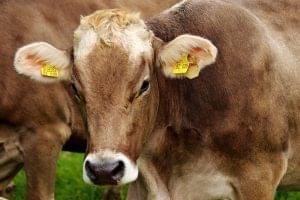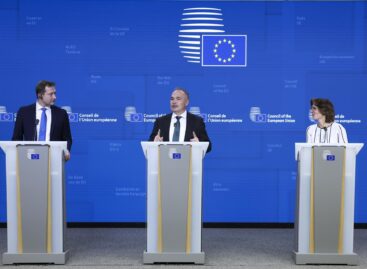The Ministry of Agriculture has published information on the duties of cattle, sheep and goat keepers for the submission of next year’s unified subsidy application
On Wednesday, the Ministry of Agriculture published information regarding the 2023 application for EU direct and rural development subsidies for cattle, sheep, and goat farmers.

(Photo: Pixabay)
According to the announcement, the amended EU rules will not make the application more difficult, but will make it simpler. The AM reminds that: on November 7, the European Commission officially accepted Hungary’s CAP Strategic Plan, which enabled work to progress with regard to the drafts of national implementing legislation affecting direct subsidies. The smooth launch of the new system is in the common interest of all stakeholders, and farmers can start preparing before the regulations are published. Animal keepers must pay particular attention to the up-to-date management of the data included in the ENAR (for example, animal movement and reproduction data) in accordance with the provisions of the law, they wrote. In the new support period starting in 2023, applications for the animal-based support entitlements listed below must be submitted to the state institutions in advance – the so-called personalized – they must help farmers with applications on the electronic interface for submitting the Single Application. So far, this only worked in relation to area-based interventions, they said. From 2023, the applications will be personalized under the following titles: support for the keeping of ewes tied to production and support for the keeping of heifers tied to production (both for the titles announced in the framework of the EU and transitional national support), support for the keeping of dairy cows tied to production, fattened bulls tied to production, the animal welfare support accompanying the restructuring of the dairy sector, small ruminant animal welfare support, the in situ and ex situ preservation of the genetic stock of protected native and endangered agricultural animal species from measures related to sheep, goats and cattle.
This is how the system works
They added: in practice, this means that when the animal keeper enters the Single Application interface for the first time, the system of the Hungarian State Treasury offers all the animals linked to the farmer that, based on the available data, can potentially meet the eligibility conditions of the given legal title. This procedure makes the application easier, reduces the possibility of making mistakes, and thus contributes to the improvement of the quality of applications. The AM emphasizes that animals can be identified with realistic data if the official databases for animal registration – primarily ENAR – contain up-to-date information. It is also important that, although the authorities strive to ensure that the data of notifications concerning animals are entered into the central database as soon as possible, and from there to the Single Application interface, but in some cases this cannot happen immediately. Thus, farmers must supplement their application with data from ENAR notifications that may still be missing from the Unified Application, they wrote.
The retention of the fattened bull subsidy linked to production was seriously threatened during the negotiations with the European Commission aimed at the adoption of the Strategic Plan of the Common Agricultural Policy
The European Commission has made the retention of the subsidy scheme conditional on the application of a new eligibility condition that is capable of generating positive effects in terms of long-term, economic sustainability. Based on the agreement, in addition to leaving the current conditions unchanged, the professional use of sire animals will also be prescribed as a new requirement – the announcement states. In order to be able to justify the use of a professional sire with a central registration number (KPLSZ) for the fattened bull that is the subject of the application, it becomes necessary to record data that is not required by the law on the registration of cattle. Given that additional support conditions do not change, in the case of the 2023 application, this means that support can be applied for animals that were slaughtered or transported/exported between April 1, 2022 and March 31, 2023 – they wrote. Considering that some of these events have already taken place, in order to prepare for the fulfillment of the new eligibility condition, the AM recommends to livestock keepers that, in the case of fattened bulls born in Hungary, it is necessary to ensure that fertilizations or mating events belonging to the mother of the requested animal are recorded in the Fertilization System (TER) recording, and making sure that the breeding events of the affected breed are properly documented during the animal’s conception period (275-300 days before birth). If the farmer wishes to apply for a subsidy for an imported animal, it is recommended to contact the breeder from which the animal comes so that the father or presumed father of the requested animal can be identified and its origin can be verified. It will be possible to request the cooperation of the breeding organizations in the authentication of the documents – they wrote. Regarding the male cattle applied for in the fattening bull subsidy, the origin data matcher code number 1452 is available to check the KPL number of the sires. In this individual-level query, you can query the data of the domestic or imported cattle that are currently in the producer’s farm or have ever been there.
After identification, the query can be accessed at the following addresses: https://upr.nebih.gov.hu/ or https://portal.nebih.gov.hu/enar – the announcement states.
MTI
Related news
AM: the Szupermenta product test program provides additional information for purchase
The National Food Chain Safety Office (Nébih) Szupermenta product test…
Read more >The Ministry of Agriculture has issued a notice on the use of ENAR data in support policy
In the case of animal-based subsidies financed from EU funds,…
Read more >Farmer-centric agricultural policy after 2027 receives unanimous support
The EU member states’ agriculture ministers have adopted Council conclusions…
Read more >Related news
Recognition of Consumer Protection Excellence: Honoring the Best of 2024
This year’s outstanding consumer protection officers and special award recipients…
Read more >The Joy of Giving! – SPAR stores collect non-perishable food for people in need
The Hungarian Maltese Charity Service and SPAR Hungary have launched…
Read more >KSH: industrial production decreased by 0.2 percent in October
In October, the volume of industrial production fell by 0.2…
Read more >








